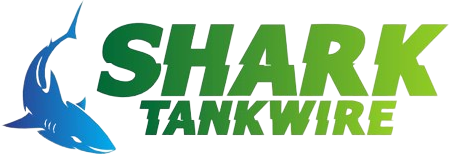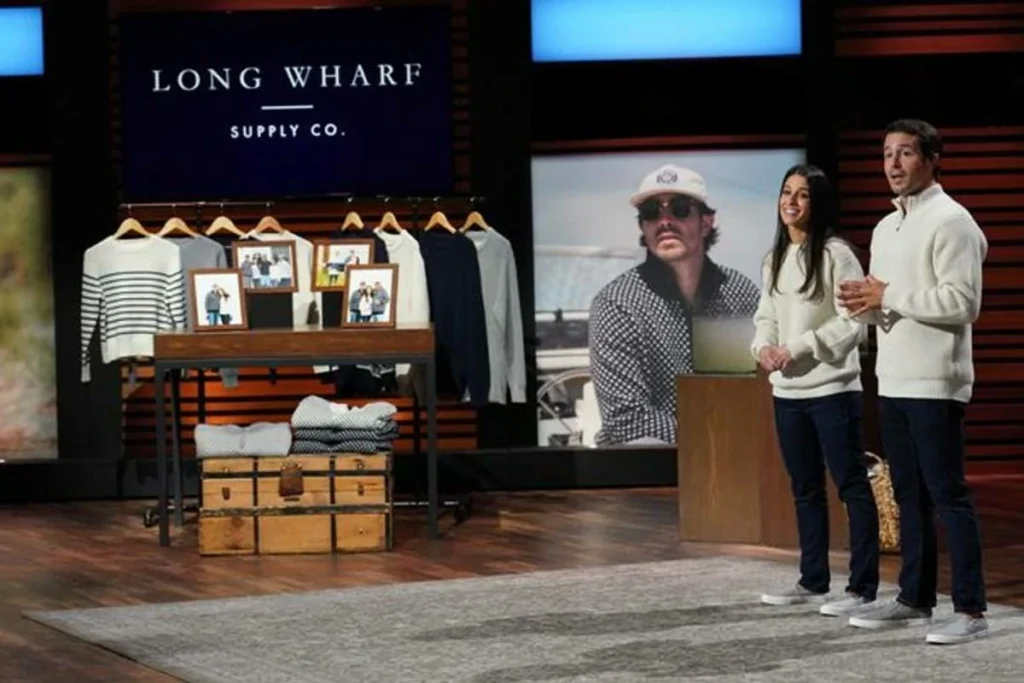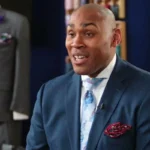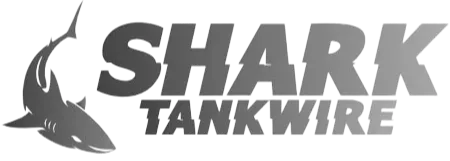What was the outcome of Long Wharf’s pitch on Shark Tank Season 13? Long Wharf, a company creating high-end apparel from recycled oyster shells and plastic bottles, did not secure an investment on Shark Tank Season 13. They originally sought $375,000 for 15% equity in their company.
Summary
- Long Wharf, a sustainable fashion brand utilizing recycled oyster shells and plastic bottles, appeared on Shark Tank Season 13.
- The company sought $375,000 for 15% equity.
- The sharks were impressed by the eco-friendly concept but had concerns about the scalability and market potential.
- Ultimately, Long Wharf did not receive an investment offer.
Long Wharf Shark Tank Update | Shark Tank Season 13
Long Wharf is making waves in the fashion industry with its unique approach to sustainability. The company utilizes recycled oyster shells and plastic bottles to create high-end apparel, offering a stylish and eco-conscious alternative to traditional clothing.
This innovative concept caught the attention of the Sharks on Season 13 of Shark Tank, but ultimately, Long Wharf didn’t secure an investment.
The Shark Tank Pitch
Long Wharf’s founders entered the Shark Tank with a bold vision: to transform waste into wearable art.
They sought $375,000 for 15% equity in their company, highlighting their unique materials and commitment to sustainability as key selling points.
| Entrepreneurs | Liz & Mike |
|---|---|
| Business | Long Wharf |
| Ask | $375,000 for 15% |
| Deal | No Deal |
| Sharks | Mark Cuban, Barbara Corcoran, Kevin O’Leary, Lori Greiner, Robert Herjavec |
| Season | Season 13 |
| Original Air Date | October 22, 2021 |
| Website | Long Wharf |
| Key Points of Pitch |
|
| Why Sharks Declined |
|
The Long Wharf Story
1. Founders and Inspiration
Long Wharf was founded by Liz and Mike, a passionate duo driven by a shared concern for the environment.
They were inspired by the staggering amount of waste generated by the seafood industry, particularly oyster shells.
They saw an opportunity to transform this discarded material into something beautiful and functional, giving new life to what would otherwise be landfill fodder.
2. The Sustainable Fashion Movement
Long Wharf’s mission aligns with the growing sustainable fashion movement. This movement promotes eco-conscious practices in the fashion industry, from using sustainable materials to reducing waste and pollution.
Long Wharf’s use of recycled oyster shells and plastic bottles embodies this ethos, offering a tangible solution to the environmental impact of traditional fashion.
3. Challenges and Achievements
Building a sustainable fashion brand is no easy feat. Long Wharf faced numerous challenges, including sourcing materials, developing production processes, and navigating a competitive market.
However, their dedication and innovative approach have yielded significant achievements.
They have successfully created a unique product line that resonates with eco-conscious consumers, demonstrating that sustainability and style can coexist.
Shark Tank Season 13: The Pitch
1. The Ask and the Offer
Long Wharf’s founders entered the Shark Tank seeking $375,000 for a 15% stake in their company.
This investment would have provided them with the necessary resources to scale their operations and expand their reach.
2. Shark Feedback and Concerns
The Sharks were intrigued by Long Wharf’s innovative concept and commitment to sustainability.
However, they also expressed concerns about the scalability of the business, the market potential for high-end apparel made from recycled materials, and the relatively high price point of the products.
3. Negotiation and Outcome
Despite a compelling pitch and a promising product, Long Wharf was unable to secure a deal with the Sharks. The negotiation process revealed differing opinions on the company’s valuation and growth potential.
While the Sharks acknowledged the importance of sustainable fashion, they ultimately decided not to invest in Long Wharf, citing concerns about the company’s ability to compete in a crowded market and achieve profitability.
Long Wharf After Shark Tank
1. Post-Show Updates and Developments
Although Long Wharf did not secure an investment on Shark Tank, their appearance on the show provided invaluable exposure.
The brand saw a significant increase in website traffic and social media engagement following the episode. This heightened visibility led to increased sales and a growing customer base, validating the demand for their unique and sustainable products.
Long Wharf continues to innovate and expand its product line, further establishing itself as a leader in sustainable fashion. They have also focused on strengthening their online presence and building a loyal community of eco-conscious consumers.
2. Lessons Learned and Future Plans
The Shark Tank experience provided valuable lessons for Long Wharf’s founders. They gained insights into the challenges of scaling a sustainable business and the importance of a strong financial model. They also recognized the need to refine their marketing strategy and target a specific audience that resonates with their brand values.
Looking to the future, Long Wharf is committed to continuing its mission of creating stylish and sustainable apparel. They plan to explore new partnerships and collaborations, expand their product offerings, and further educate consumers about the importance of sustainable fashion.
Despite the Shark Tank setback, Long Wharf’s journey is far from over. They are determined to prove that fashion and sustainability can thrive together.
The Sustainable Fashion Industry
1. Trends and Growth
The sustainable fashion industry is experiencing significant growth, driven by increasing consumer awareness of the environmental impact of traditional fashion practices.
Consumers are demanding more transparency and accountability from brands, seeking out eco-friendly materials, ethical production processes, and circular business models.
This shift in consumer behavior is fueling the growth of sustainable fashion brands, creating a thriving market for innovative and eco-conscious apparel.
2. The Role of Shark Tank in Promoting Eco-Conscious Brands
Shark Tank has played a crucial role in promoting eco-conscious brands like Long Wharf. By featuring these brands on a national platform, the show has helped raise awareness about sustainable fashion and its potential to create positive change.
The Sharks’ questions and feedback also provide valuable insights for aspiring entrepreneurs, highlighting the challenges and opportunities in this growing industry.
3. Opportunities and Challenges for Sustainable Fashion Entrepreneurs
Sustainable fashion entrepreneurs face a unique set of opportunities and challenges. The growing demand for eco-conscious apparel presents a significant market opportunity.
However, entrepreneurs must also navigate the complexities of sourcing sustainable materials, developing ethical production processes, and competing with established brands.
Additionally, they must educate consumers about the value of sustainable fashion and overcome the misconception that it is expensive or less stylish than traditional clothing.
Despite these challenges, the future of sustainable fashion is bright. With continued innovation, consumer education, and support from platforms like Shark Tank, sustainable fashion has the potential to revolutionize the industry and create a more positive impact on the planet.
FAQs
What materials does Long Wharf use?
Long Wharf utilizes recycled oyster shells and plastic bottles to create their unique fabric blend. This innovative approach repurposes waste materials, reducing environmental impact and promoting a circular economy.
What are the benefits of sustainable fashion?
Sustainable fashion offers numerous benefits. It reduces waste and pollution, conserves resources, supports fair labor practices, and promotes a more ethical and transparent fashion industry. By choosing sustainable fashion, consumers can contribute to a healthier planet and a more socially responsible industry.
Where can I buy Long Wharf products?
Long Wharf products can be purchased directly from their website. They offer a variety of stylish and sustainable apparel for men and women, including shirts, pants, and accessories.
How can I support sustainable fashion brands?
There are many ways to support sustainable fashion brands. You can purchase their products, spread the word about their mission, and advocate for more sustainable practices in the fashion industry. You can also donate to organizations that support sustainable fashion initiatives and educate yourself about the environmental and social impact of your clothing choices.
The Bottom Line
Long Wharf’s Shark Tank journey may not have resulted in a deal, but it highlights the growing importance of sustainable fashion. Their innovative approach to repurposing waste materials and creating stylish, eco-conscious apparel is paving the way for a more responsible and sustainable fashion industry. While challenges remain, the future of sustainable fashion is bright, and brands like Long Wharf are leading the charge towards a more ethical and environmentally friendly future.








